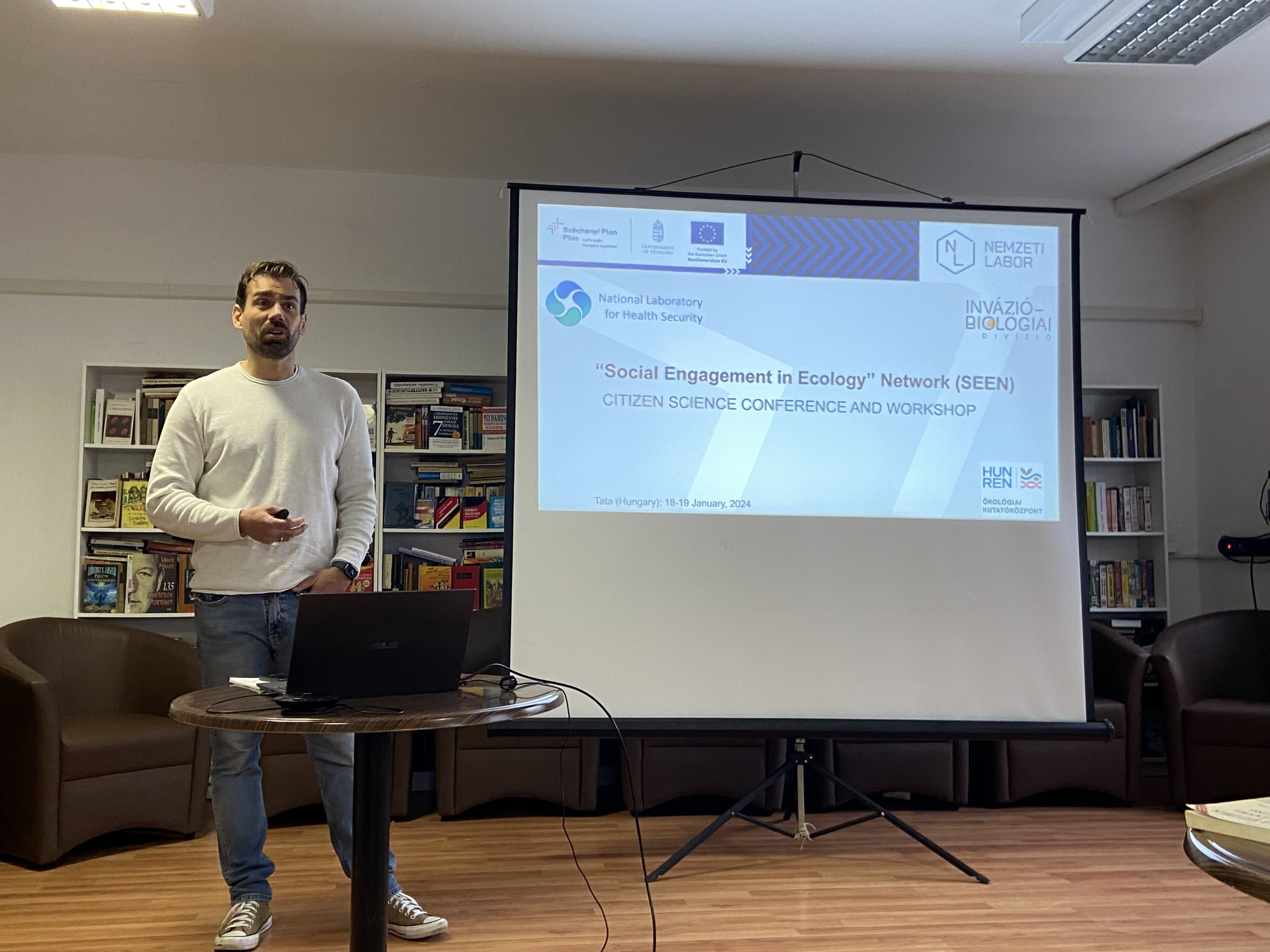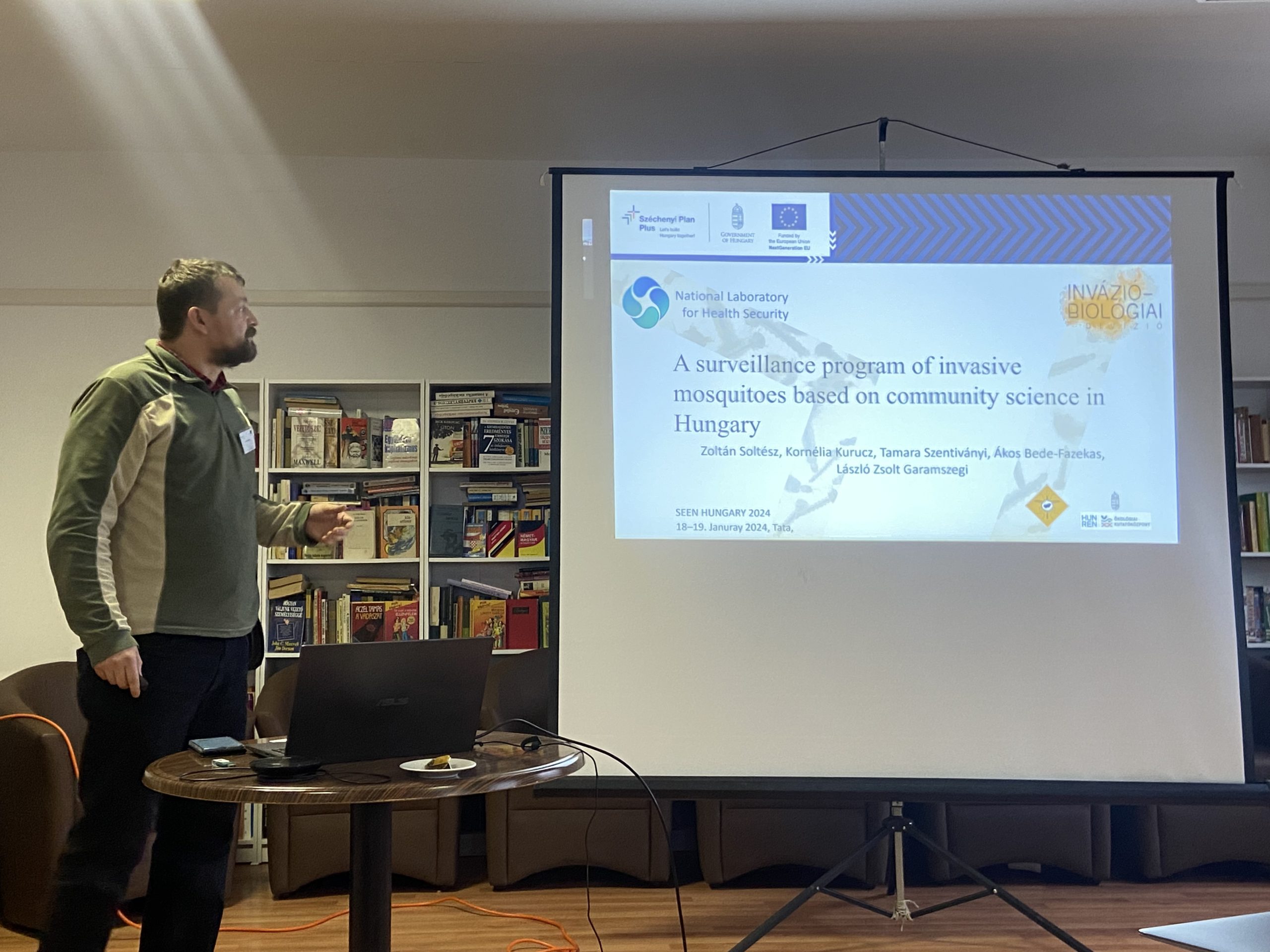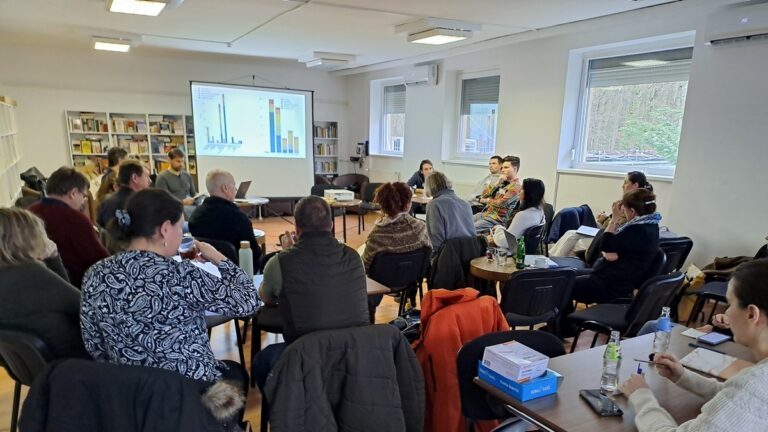In January 2024, the HUN-REN Ecological Research Centre’s Evolutionary Ecology Research Group launched a network of community science projects on conservation and ecology in Hungary. The SEEN (Social Engagement in Ecology Network) Conference, held in Tata on 18-19 January, aimed primarily to create a living link between Hungarian community science projects and the researchers working on them.
The community science method is about involving civilians at different stages of the scientific process. For example, in cases where researchers want to collect data from across the country on the occurrence of particular species, observations by civilians can multiply the effectiveness of the research. This can be particularly important in the case of invasive species, where up-to-date information on the distribution and abundance of species is of particular importance.

Several community science projects aimed at detecting and monitoring invasive species, such as ticks, mosquitoes or an ivy species, were presented at the SEEN conference. Several research groups from the Invasion Biology Division of the National Laboratory for Health Security were represented. In addition to the above-mentioned research on invasive ticks and mosquitoes, the research also covered alien plants escaping from gardens and an intensively spreading native species, the beaver. In this way, research into invasion biology has received considerable attention.
As well as presenting research, the conference focused on community science as a socially important method. Involving citizens in the scientific process is an opportunity to transfer knowledge, to raise awareness of ecological, health and social problems affecting our environment, and to increase trust in scientists and science. Last but not least, it can help to bridge the gap between scientists and society, which for many seems unbridgeable.

This research was supported by the National Talent Programme of Hungary and the Prime Minister's Office (NTP-NFTÖ-21-B-0288), and by the National Laboratory for Health Security (RRF-2.3.1-21-2022-00006), Centre for Ecological Research, Budapest, Hungary.



